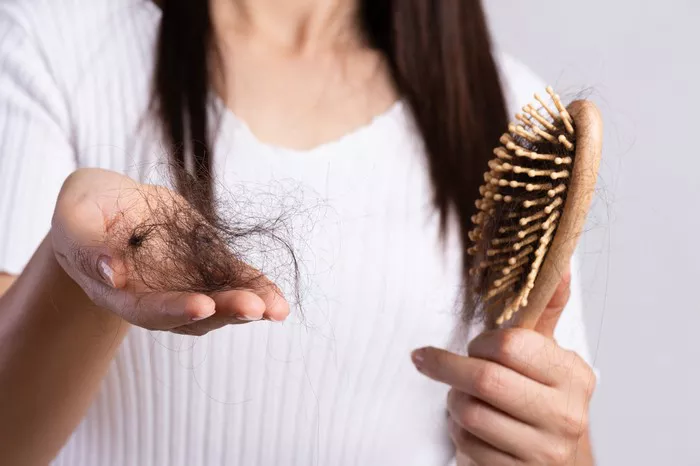In the quest for healthy, vibrant hair, individuals often explore various supplements and treatments to combat hair loss and promote hair growth. Collagen, a protein found abundantly in the body, has gained attention for its potential role in improving hair health. But can taking collagen supplements really help with hair loss? In this article, we delve into the science behind collagen and its impact on hair loss, exploring the evidence, benefits, and considerations.
Understanding Collagen
Before delving into its potential effects on hair loss, it’s essential to understand what collagen is and its role in the body:
Structural Protein: Collagen is the most abundant protein in the human body, comprising a significant portion of connective tissues such as skin, bones, tendons, and ligaments. It provides structure, strength, and elasticity to various tissues, contributing to their integrity and function.
Types of Collagen: There are different types of collagen, with type I being the most prevalent in the body and particularly abundant in the skin, hair, and nails. Type III collagen is also found in the skin and plays a role in maintaining its elasticity.
Natural Decline: As individuals age, the production of collagen naturally declines, leading to various signs of aging such as wrinkles, sagging skin, and brittle hair. Additionally, factors such as UV exposure, pollution, smoking, and poor nutrition can further accelerate collagen breakdown.
Can Collagen Help With Hair Loss?
While collagen is primarily known for its benefits to skin health, some proponents suggest that it may also play a role in promoting hair growth and preventing hair loss. Here’s what the research says:
Supporting Hair Follicles: Collagen provides essential amino acids that are building blocks for hair growth. These amino acids, such as proline, glycine, and lysine, contribute to the structure and strength of hair follicles, promoting healthy hair growth.
Stimulating Hair Growth: Some studies suggest that collagen peptides, which are smaller fragments of collagen protein, may have bioactive properties that stimulate hair follicles’ activity and promote hair growth. These peptides may help increase the production of proteins such as keratin, which is essential for hair strength and resilience.
Improving Scalp Health: Collagen may also support scalp health by promoting better circulation and hydration. A healthy scalp environment is crucial for optimal hair growth, as it provides the necessary nutrients and oxygen to hair follicles.
Protecting Against Damage: Collagen’s antioxidant properties may help protect hair follicles from damage caused by free radicals, UV radiation, and environmental pollutants. By reducing oxidative stress, collagen may help preserve the integrity of hair strands and prevent premature hair loss.
Benefits of Taking Collagen for Hair Loss
While more research is needed to fully understand collagen’s effects on hair loss, some potential benefits of taking collagen supplements for hair health include:
Promotes Hair Growth: Collagen supplementation may help stimulate hair follicles and promote the growth of stronger, healthier hair.
Improves Hair Texture: By enhancing the structural integrity of hair strands, collagen may help improve hair texture, making it smoother, shinier, and more manageable.
Reduces Hair Thinning: Collagen’s support for hair follicles and scalp health may help reduce hair thinning and prevent excessive shedding.
Supports Overall Hair Health: Collagen’s role in promoting scalp circulation, hydration, and antioxidant defense contributes to overall hair health, making it less prone to damage and breakage.
Complements Other Treatments: Collagen supplements can be used in conjunction with other hair loss treatments, such as topical minoxidil or prescription medications, to enhance their effectiveness and support long-term hair growth.
Considerations and Potential Drawbacks
While collagen supplements may offer potential benefits for hair health, it’s essential to consider the following factors:
Individual Response: The effectiveness of collagen supplementation for hair loss may vary depending on individual factors such as age, genetics, underlying health conditions, and lifestyle habits.
Quality of Supplements: Not all collagen supplements are created equal. It’s crucial to choose high-quality products from reputable brands that undergo rigorous testing for purity, potency, and bioavailability.
Dosage and Duration: Optimal dosage and duration of collagen supplementation for hair loss have not been established. It’s recommended to follow the manufacturer’s instructions or consult with a healthcare professional for personalized guidance.
Potential Side Effects: While collagen supplements are generally considered safe for most people, some individuals may experience mild side effects such as digestive discomfort or allergic reactions. It’s advisable to start with a lower dosage and monitor for any adverse reactions.
Cost: Collagen supplements can be relatively expensive compared to other hair loss treatments. It’s essential to consider the long-term cost implications and weigh them against potential benefits.
Conclusion
In conclusion, while collagen holds promise as a potential supplement for promoting hair health and combating hair loss, more research is needed to fully understand its mechanisms of action and effectiveness. Preliminary evidence suggests that collagen may support hair follicles, stimulate hair growth, and improve scalp health, but further studies are warranted to confirm these findings. For individuals considering collagen supplementation for hair loss, it’s essential to choose high-quality products, follow recommended dosages, and consult with a healthcare professional for personalized advice. While collagen supplements may offer benefits as part of a comprehensive approach to hair care, they should not be viewed as a standalone solution for addressing hair loss. By understanding the potential benefits and considerations of collagen supplementation, individuals can make informed decisions to support their hair health and overall well-being.
What To Eat To Improve Hair Thickness

